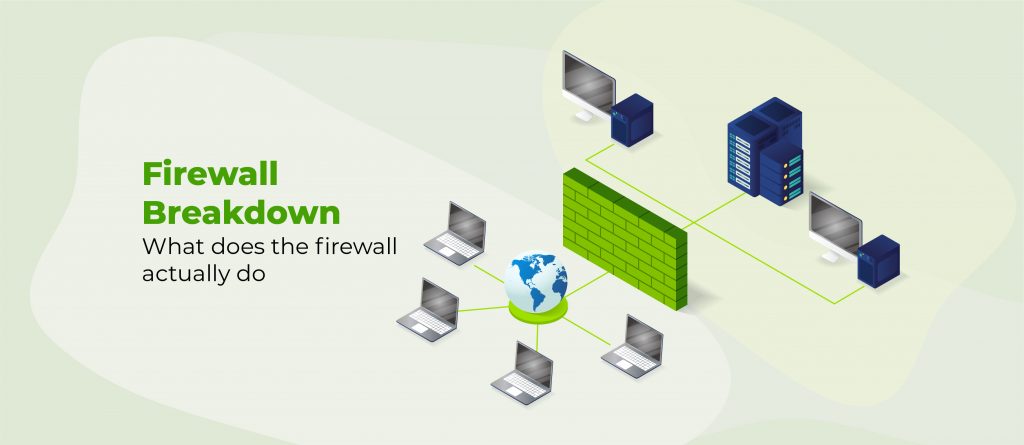WooCommerce stores face constant security threats, from automated bot attacks to sophisticated hacking attempts. These threats target sensitive customer data, payment information, and store operations. A comprehensive security strategy becomes essential for protecting your online business and maintaining customer trust.
Firewalls serve as the first line of defence against cyber threats, monitoring and filtering incoming traffic to your WooCommerce site. As security threats evolve, firewalls provide crucial protection against emerging vulnerabilities, helping ensure your store’s continued operation and safeguarding your customers’ data.
Benefits of using a firewall for WooCommerce security
A firewall acts as a protective barrier between your WooCommerce store and potential threats, analysing incoming traffic and blocking malicious attempts to access your site. This security layer prevents common attack vectors like SQL injections and cross-site scripting (XSS) that could compromise your store’s data.
Advanced firewall systems defend against brute-force login attempts by limiting failed login tries and temporarily blocking suspicious IP addresses. They also protect against Distributed Denial of Service (DDoS) attacks by identifying and filtering out abnormal traffic patterns that could overwhelm your server.
Firewalls play a key role in protecting the customer journey by filtering out malicious traffic and ensuring secure access to the WooCommerce site. By blocking malicious bots and suspicious IPs, firewalls help maintain optimal site performance and prevent server resources from being wasted on potentially harmful requests.
Types of firewalls for WooCommerce security
Application-level firewalls (WAFs) specialise in protecting WooCommerce stores by analysing HTTP traffic patterns. These firewalls understand WordPress-specific threats and can identify suspicious activities that might slip past traditional security measures. WAFs excel at protecting against application-layer attacks, including those targeting WooCommerce-specific vulnerabilities.
Network-level firewalls operate at a lower level, monitoring and filtering traffic based on IP addresses, ports, and protocols. These firewalls provide broad protection against network-based attacks and unauthorised access attempts. They act as a crucial barrier between your WooCommerce store and potential threats from the wider internet.
The distinction between WAFs and traditional firewalls matters for WooCommerce security. While traditional firewalls excel at network security, WAFs provide specialised protection against web application threats. Many stores benefit from implementing both types, creating multiple layers of security that protect against different types of attacks.
For WooCommerce stores leveraging cloud environments, integrating a Cloud Native Application Protection Platform (CNAPP) can further elevate this multi-layered approach. CNAPPs offer a unified solution combining application security, firewall capabilities, and cloud infrastructure protection. This ensures your store is safeguarded against traditional and cloud-native threats, providing end-to-end security for your e-commerce operations.
Choosing the right firewall solution for WooCommerce
Selecting an appropriate firewall solution requires careful consideration of your store’s specific needs. Essential features include real-time threat detection, automated blocking of suspicious IPs, and regular rule updates to protect against emerging threats. Look for solutions that offer detailed logging and reporting capabilities to help track and respond to security incidents.
When evaluating firewall options, consider your store’s size, traffic volume, and security requirements. While free solutions might suffice for smaller stores, growing businesses often benefit from paid solutions offering advanced features and dedicated support. It’s also essential to consider WordPress hosting options that provide firewall support for WooCommerce stores, as hosting plays a major role in overall security.
Budget considerations should extend beyond initial costs to include ongoing maintenance and potential scaling needs. Premium firewall solutions typically offer better protection and more frequent updates, potentially justifying their higher cost through improved security and reduced risk of breaches. Consider the potential cost of a security breach when evaluating different firewall options.
Integrating firewalls with other WooCommerce security tools
Firewalls function most effectively as part of a comprehensive security strategy. Integration with security plugins enables better threat detection and response, while complementary tools like malware scanners and intrusion detection systems provide additional layers of protection.
Backup solutions like ShieldBACKUPS work alongside firewalls to ensure business continuity. While firewalls prevent unauthorised access, regular backups protect against data loss if a breach occurs. Monitoring tools complement firewall protection by tracking site performance and identifying potential security issues before they become serious threats.
A multi-layered security approach combines various tools and practices. This might include SSL certificates for encrypted connections, two-factor authentication for admin access, and regular security audits. Each layer addresses different aspects of security, creating a robust defence against various types of attacks.
Monitoring firewall performance and analysing security reports
Regular monitoring of firewall logs reveals patterns in attack attempts and highlights potential vulnerabilities. Understanding these patterns helps optimise firewall rules and improve overall security. Implementing a thorough content review process ensures all site changes maintain security standards.
Performance analysis should focus on both security effectiveness and site speed impact. Monitor blocked requests to ensure legitimate traffic isn’t being filtered incorrectly. Regular review of threat reports helps identify emerging attack patterns and adjust protection accordingly.
Fine-tuning firewall settings based on these insights improves both security and performance. This might involve adjusting sensitivity levels, updating blocking rules, or modifying traffic filtering parameters to match your store’s specific needs.
Conclusion
Firewalls provide essential protection for WooCommerce stores, serving as a critical component of comprehensive security strategies. The right firewall solution, properly integrated with other security measures and regularly monitored, helps protect against various cyber threats while maintaining site performance.
Success with firewall implementation requires ongoing attention to security reports and performance metrics. Store owners should regularly review their security measures, update configurations as needed, and stay informed about emerging threats to maintain effective protection for their WooCommerce stores.

